Quakers Living Out Callings to Lead
Friends seeking to let their lives speak may discern and follow leadings to direct regional, national, or transnational Quaker associations. Many such leaders come to their jobs after years of experience with non-Quaker groups and feel a sense of unity between faith and work in their new roles. Heads of several Quaker organizations, who have started their positions in recent years, shared with Friends Journal the spiritual resources they draw upon to power their work, as well as the sometimes painful leadership lessons they have learned.
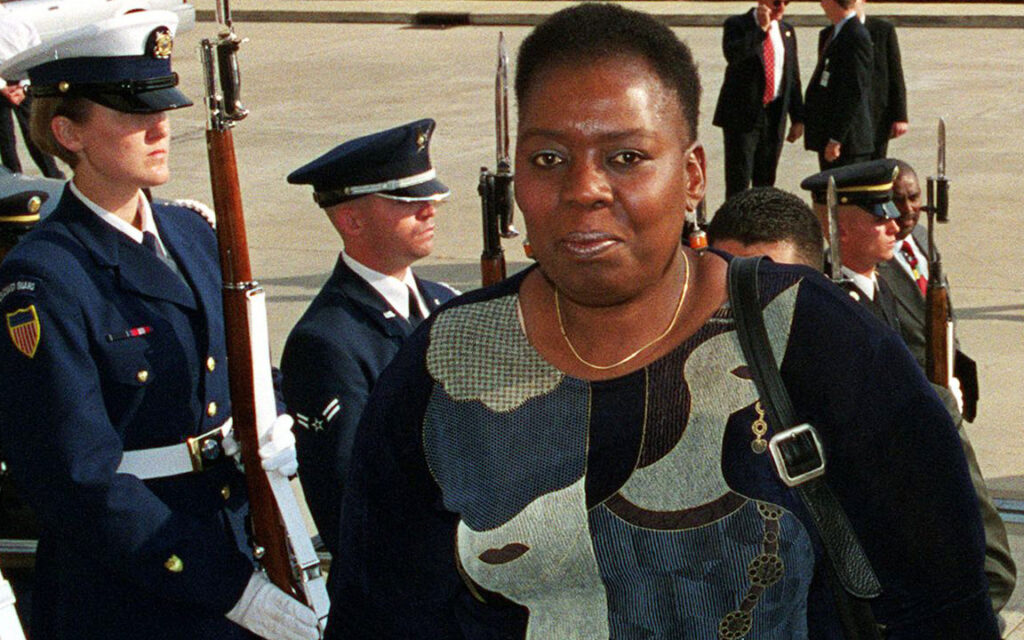
Minister Nozizwe Madlala-Routledge walks into the Pentagon on Oct. 16, 2000.
Photo by R. D. Ward on Wikimedia Commons.
One Friend described how her Quaker pacifism developed and informs her work. Nozizwe Madlala-Routledge serves as the director of the Quaker United Nations office in Geneva, Switzerland. Madlala-Routledge first discovered Quakers in the early 1980s through a Friends community in Durban, South Africa. She was moved when a Quaker from the meeting went to prison for refusing military conscription. She deepened her understanding of Friends pacifism by reading Sydney D. Bailey’s Swarthmore lecture “Peace is a Process.”
In 1999, she was appointed deputy minister of defense of South Africa, the first Quaker to hold the position. She initially wanted to have nothing to do with the military but grew open to discussing soldiers’ fears and feelings for their loved ones. She drew on this universal care for dear ones to establish common ground with members of the armed forces.
“I also worked to transform their thinking about peace. We challenged the idea that to prepare for peace, you must prepare for war,” Madlala-Routledge said.
In 2004, she received the Peacemaker in Action Award from the Tanenbaum Center for Interreligious Understanding in recognition of her work for women’s equality. This award showed support for her belief that universal human rights form the basis for peace.
Madlala-Routledge joined the anti-apartheid movement in her home country of South Africa. She served as a delegate at the Convention for a Democratic South Africa, in which dialogue figured largely in establishing post-apartheid democracy. She interacted with the Quaker United Nations Office (QUNO) when conflict broke out in Bosnia, and did so again during the creation of Quaker Peacemakers in Africa. Working for QUNO has enabled Madlala-Routledge to continue advocating for human rights as a pathway to peace. This allows her to establish two-way communication with the global Quaker community to help ensure international treaties are implemented at the national level.
“The famous Peace Testimony is very critical for us to influence the work at QUNO,” Madlala- Routledge said.
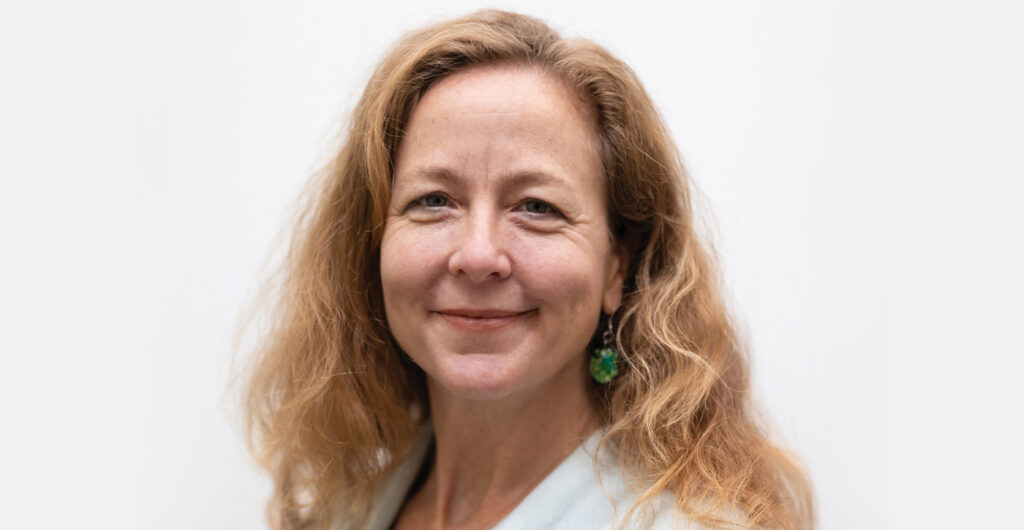
Bridget Moix. Photo by Cherris May/FCNL.
The peace testimony similarly motivates a Friend who recently took the helm at Friends Committee on National Legislation (FCNL). FCNL general secretary Bridget Moix has spent a lot of time with people and communities on the frontline of lethal conflicts. “I learned a lot from them about what peace building means,” Moix said.
According to Moix, U.S. citizens can urge their elected officials to reduce the likelihood of nuclear war by supporting a diplomatic end to the war between Russia and Ukraine, and by accepting China’s role as a peace broker. Nuclear arms control treaties must include China, she noted.
After interning at American Friends Service Committee in her junior year of college, Moix applied to FCNL after graduation. She wanted to work for peace and justice, and Quaker organizations were the only ones she found that would pay for such labor. She previously worked as an FCNL intern as well as the senior legislative secretary for the organization’s foreign policy program.
Moix grew up Catholic and recalls having a lot of spiritual questions to which she did not get satisfying answers. She found Quakerism’s emphasis on experience and action fortifying. Moix draws strength from belonging to a community that dares to believe peace is possible, and consistently lobbies Congress to promote nuclear disarmament. To sustain her work at FCNL, Moix grounds herself in worship. “I couldn’t do this work without my faith,” Moix said.
In addition to living up to the peace testimony, FCNL seeks to adhere to the equality testimony by prioritizing diversity, equity, and inclusion. Moix describes FCNL’s work toward these goals as ongoing and constant. The organization is following the leadership of Lauren Brownlee, FCNL’s new associate general secretary for community and culture, who heads a team that focuses on equity issues.
Some Friends hold a misconception that if a Quaker organization becomes more diverse, it becomes less Quaker, according to Moix. “We become more Quaker as we become more diverse, equitable, and inclusive,” Moix said.
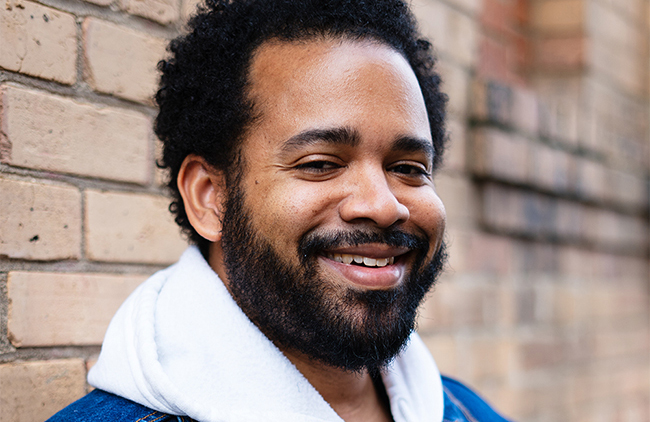
Rashid Darden. Photo courtesy of FGC.
Other Friends serving as leaders also reflected on the need for ongoing antiracist work in Quaker spaces. Black Friends experience microaggressions at “cosmopolitan, socially conscious” meetings, which is an experience White Friends do not understand, according to Rashid Darden, communications manager at Friends General Conference (FGC) and clerk of the Fellowship of Friends of African Descent. The transnational fellowship holds virtual meetings for worship as well as annual gatherings for Friends of African ancestry.
“White supremacy is, unfortunately, the legacy club that all White people in America are born into. And until they are awakened to that, they will continue benefiting from it and that benefit will harm Black Friends, Friends of Color,” said Darden. Darden suggested that White Friends should delve into their innermost thoughts and decide whether they are willing to follow the leadership of Black Friends or not.
Darden is a member of Friends Meeting of Washington (D.C.). He previously convened Transatlantic Friends Worship Group, which is currently on hiatus. He pointed out that he is speaking from Black experience and not intending to speak for all People of Color. Black Quaker experience is “both old and non-monolithic,” according to Darden, who identifies as a Black, gay man.
Darden has been a Quaker for 12 years and became more engaged with his faith during the pandemic. He first heard of Friends by watching the TV show Six Feet Under, which had a Quaker character. When he first became a Friend, he used the FGC website to research Quakerism. Working as communications manager has allowed Darden to add to the encyclopedia that is the FGC web site and expand his skill set.
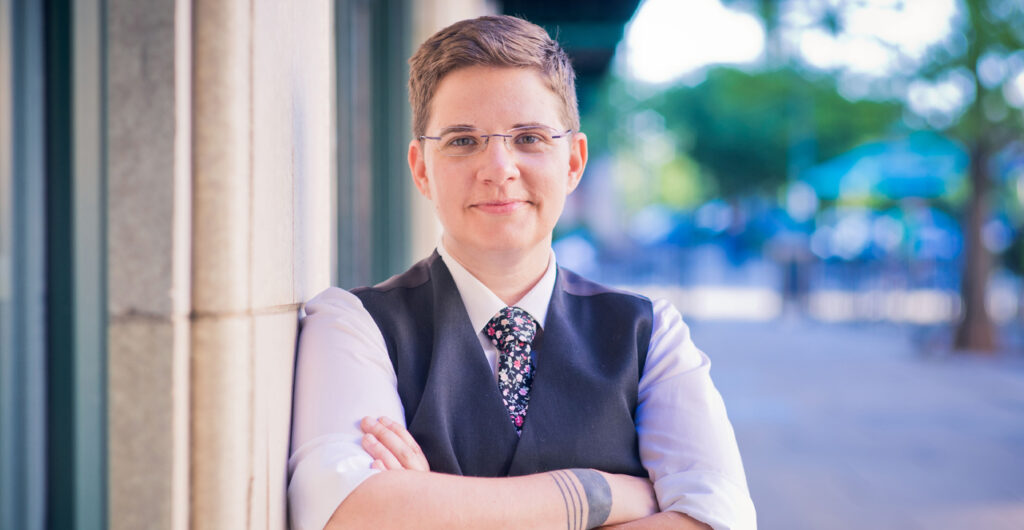
Sarah Gillooly. Photo courtesy of Sarah Gillooly.
Sarah Gillooly serves as general secretary of Baltimore Yearly Meeting (BYM). They have been open to the challenging, transformative, and painful work of antiracism, which has led BYM to adopt better equity practices in hiring and evaluation.
Gillooly’s antiracism work has included participating in a redress process with a Friend of Color who decided to leave employment with the yearly meeting after experiencing racism in the workplace. The redress process requires BYM staff to undergo training on “microaggressions, uprooting White supremacy and/or racial humility and resilience,” according to a yearly meeting document. As part of the process, Gillooly committed to undergoing coaching on how to interrupt racist behavior as it is happening. Gillooly’s next annual review will have questions measuring their progress toward consistently interrupting racist behavior in the moment.
Gillooly came out as queer and saw the Catholic church they grew up in as promoting “toxic theology.” They left their faith and, for some time, did not have a religious affiliation. Then in college, they attended a queer feminist seder hosted at a Quaker meeting, which led to their becoming a “sporadic attender” at Atlanta (Ga.) Meeting. After moving back to the Washington, D.C. area, Gillooly grew more involved with Quaker worship.
“Cultivating that practice of stillness and silence was profoundly moving,” Gillooly said. Gillooly and their wife are currently members of Adelphi (Md.) Meeting.
Inspired by the work of author and activist adrienne maree brown, Gillooly believes that we build the commonwealth of God by nurturing the units of our direct relationships, be they professional or personal. “My faith animates my work. It is the spirit and the breath of my work,” Gillooly said.

Nikki Holland with family in Mexico in 2019.
Photo by Cori Baumann.
Another Quaker leader recalls overcoming oppressive theology from her childhood faith in order to live out a calling to lead. Nikki Holland, director of the Belize City (Belize) Friends Center, had to overcome internalized sexism to succeed in her leadership position, as she had grown up in a church that taught her to avoid taking the initiative in the presence of men. “I was taught to be silent and in the background,” Holland said, noting that she had learned to avoid “bossiness.” “I recognize that now as leadership,” Holland said.
Holland considers setting boundaries one of the most important lessons she has learned about leadership. Lack of boundaries led to severe health consequences, so she discovered that limits have to be based on what her body can handle and what is good for her, rather than what others expect of her, she said. “No one else in my life understands all the demands placed on me,” Holland said.
Often overwhelmed by the deep and varied needs of the people to whom she ministers, Holland thinks frequently of the biblical story of Jesus feeding a crowd with what started as a tiny amount of food. In the story, according to the Gospel of John, Jesus takes a boy’s gift of five loaves of bread and two fish, thanks God for it, and turns it into enough food to feed 5,000 people.
During the pandemic shutdown, Holland procured devices to enable virtual learning, and supervised the teachers who within one week developed a distance education program. She drove food packages to students’ homes and noticed that the families to whom she brought groceries shared them with their neighbors. “It felt miraculous to see,” Holland said.
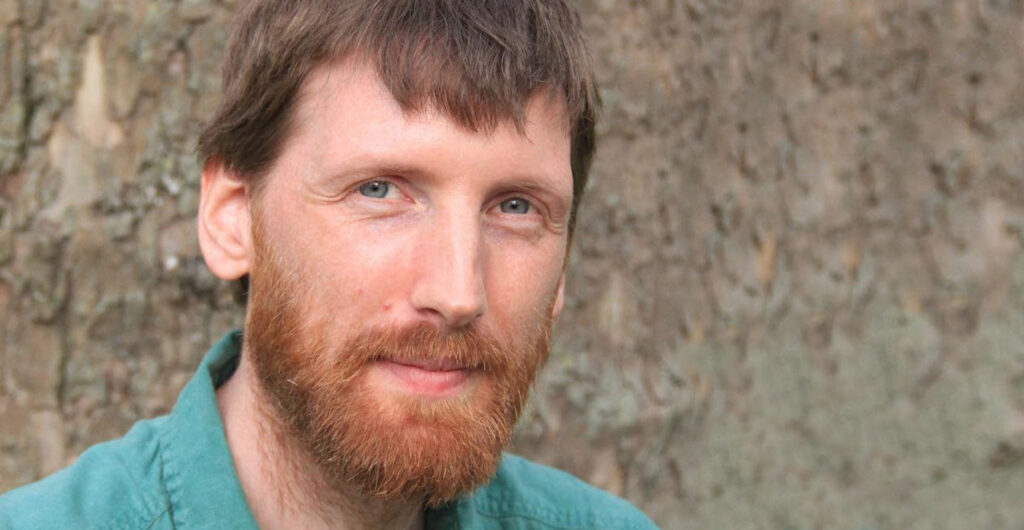
Tim Gee. Photo courtesy of Tim Gee.
Another Quaker leader relies on a passage from the Bible to sustain his work. Tim Gee, general secretary of Friends World Committee for Consultation, draws inspiration from the parable of the sower, which is recounted in the Gospel of Matthew. In the parable, a farmer scatters seed on patches of ground with varying degrees of fertility. The seeds represent Jesus’s message about the reign of God, and the soil represents human hearts that receive and allow it to grow to different degrees of abundance. Gee considers it FWCC’s duty to take care of the metaphorical ground. Events such as the World Plenary Meeting and World Quaker Day can provide good spiritual soil, according to Gee.
Gee, who works at the FWCC office in London, comes from Britain Yearly Meeting, which is Liberal. He identifies as a Christ-centered Friend by heritage and convincement.
Gee contributes to connections among members of the global family of Quakers and tries to hold spaces where decisions can take place. Gee describes himself as a younger Friend in a leadership position, an identity about which he used to feel self-conscious but which he has grown into over time.
“I’m needing to learn the difference between audacity and hubris. And the difference between being humble and being resigned. So, for example, the idea that God has a specific plan for each of us that we can discern through prayerful contemplation is probably quite audacious, but I believe that it’s true,” Gee said.
Heads of Quaker organizations approach their positions as leadings for which they require spiritual sustenance. They have had to grapple with various forms of oppression in their quests to live as they are Spirit-led.
This article has been updated to include the correct name of Quaker Peace Network-Africa which was misstated as Quaker Peacemakers in Africa.




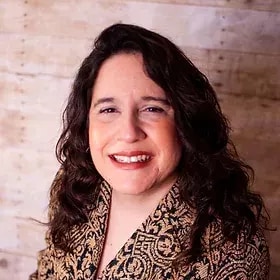
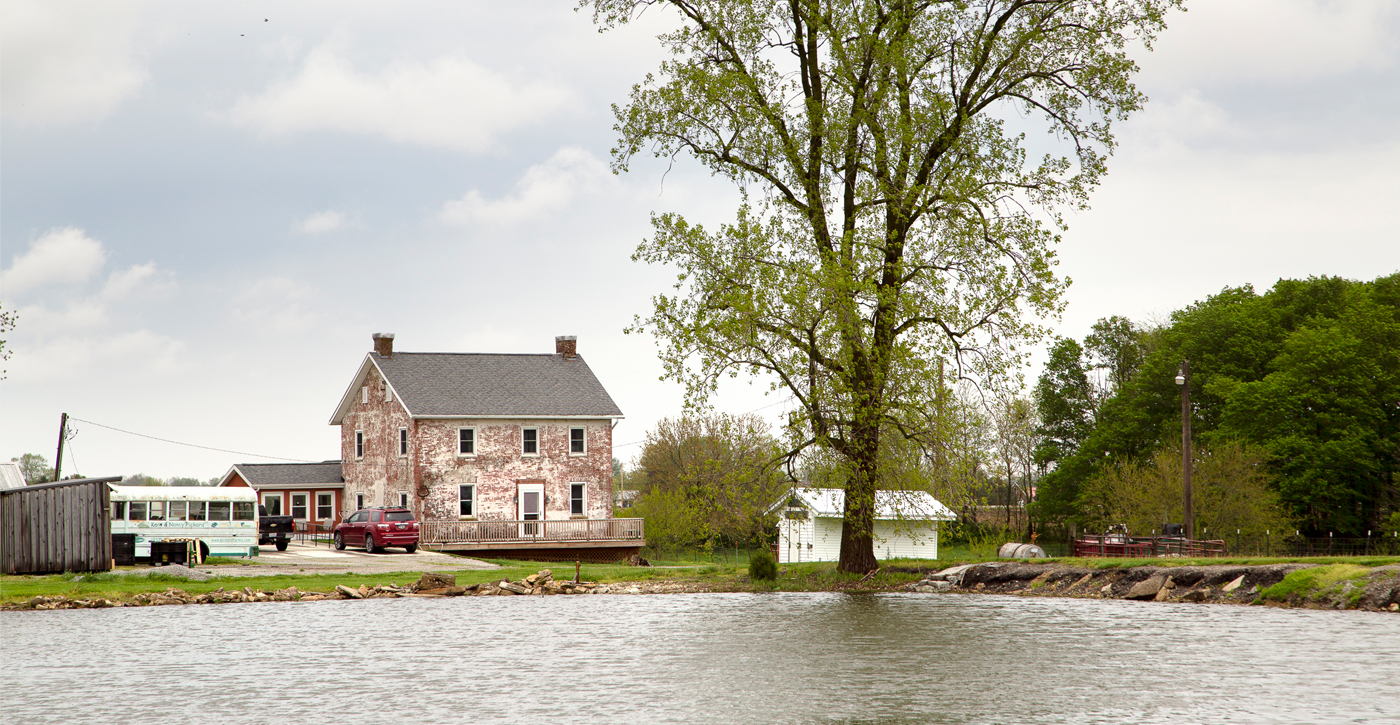
What a wonderful concept: “ the difference between audacity and hubris and the difference between being humble and being resigned.” This was a helpful and encouraging article.
Though it is interesting and important to hear how and what Quaker leaders perceive and do within their organizations, I can’t help but wonder about relevance. Are they (QLs in QOS) not just paddling about in puddles that are growing smaller and smaller? The number of Quaker leaders outside of Quaker organizations is far greater (no proof of this, but I’m guessing I’m correct) who ‘paddle’ about in lakes, if not oceans, receive very little recognition or support from the Quaker hierarchy. For example, how about those Quakers who teach outside of Quaker schools? How do they go about m making a difference, and what kinds of differences do they want to make? Have queries been developed to address this population (not just educators), and how does the Journal bring forth discussions resulting from such introspection? I can’t put my pen where my mouth is since I’ve long been retired from education, but I know that when I was active, I felt that what the Journal reported on regarding educational leadership was barely relevant to what I lived day in and day out. Despite this lack of Quaker organizational support, I tried to maintain what I perceived as a Quaker approach in each of my very different schools.*
* I served as a private school headmaster in the North and in the South, in elementary and high schools, in non-sectarian, Episcopal, and Jewish schools. I’ve taught grades 5-12, boarding and day schools, everything from English to philosophy and leadership.
Hi Jay, you might be interested in our Quakers in the Workplace issue from a few years ago, which mostly focused on Friends living out our values in non-Quaker settings. There was even an article specifically about Quaker teachers who didn’t work in Quaker schools. I hope you might find that issue helpful. https://www.friendsjournal.org/issue-category/2017/january-2017/
In Friendship,
Martin